Cargando...
Recursos educativos
-
Nivel educativo
-
Competencias
-
Tipología
-
Idioma
-
Tipo de medio
-
Tipo de actividad
-
Destinatarios
-
Tipo de audiencia
-
Creador
Lo más buscado
- Experimentos primero
- Cuentos cortos para dormir
- Alimentación saludable en sexto grado
- Instrumentos de cuerda
- Carnaval
- Experimentos de anatomía primaria
- Ejercicios escolares para niños de 7 años
- Actividades cientificas para cuarto grado
- Juegos de dictado de palabras segundo grado
- Cine y educación
- Juegos de tangram de figuras
- Repaso de biología
- Descargar ejercicios de ingles
- Ejercicios resueltos
- ejercicios inglés
-

End-of-unit evaluation - Feudal Europe
EduBook Organización
- 6092 visitas
In the Middle Ages a new political, economic and social system appeared in western Europe: feudalism. The monarch gave land (fiefdoms) to nobles and clergy to govern in his name. In return, they became…
-
End-of-unit activities - Animal nutrition
EduBook Organización
- 5901 visitas
Animals are heterotrophic organisms; they cannot make the organic material they need to eat. They can get organic material from other animals and from plants. Plants are the only living things that can…
-

True / false. The Earth
EduBook Organización
- 5604 visitas
Answer true or false: The Earth is flattened at the poles. From space, the Earth looks blue because of the oxygen in the atmosphere. The equator is an imaginary line that divides the Earth into east and…
-
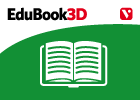
End-of-unit evaluation - Absolute Monarchy: The Catholic Monarchs
EduBook Organización
- 5470 visitas
The 15th century marked the end of the Middle Ages and the beginning of the Modern Age. The Modern Age saw economic and population growth. There was also an increase in artisan activity and the…
-
End-of-unit evaluation - Animal nutrition
EduBook Organización
- 1 lo usan
- 5016 visitas
Animals are heterotrophic organisms; they cannot make the organic material they need to eat. They can get organic material from other animals and from plants. Plants are the only living things that can…
-
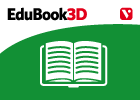
Introduction - Absolute Monarchy: The Catholic Monarchs
EduBook Organización
- 5181 visitas
The 15th century marked the end of the Middle Ages and the beginning of the Modern Age. The Modern Age saw economic and population growth. There was also an increase in artisan activity and the…
-
Investigate - Animal nutrition
EduBook Organización
- 5033 visitas
Animals are heterotrophic organisms; they cannot make the organic material they need to eat. They can get organic material from other animals and from plants. Plants are the only living things that can…
-
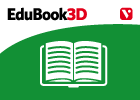
The secondary sector
EduBook Organización
- 4645 visitas
In the secondary sector people use products obtained in the primary sector to make materials like metals, finished products like cars, or energy like electricity. Mining Miners work in a system of…
-
Remember - Animal nutrition
EduBook Organización
- 4636 visitas
Animals are heterotrophic organisms; they cannot make the organic material they need to eat. They can get organic material from other animals and from plants. Plants are the only living things that can…
-
Investigate - Motion and forces
EduBook Organización
- 4635 visitas
In the world around us, we can see many objects in motion: cars, bicycles, planes, even ourselves. The planets in the Solar System are also in constant motion around the Sun. All motion can be described…
Te estamos redirigiendo a la ficha del libro...












